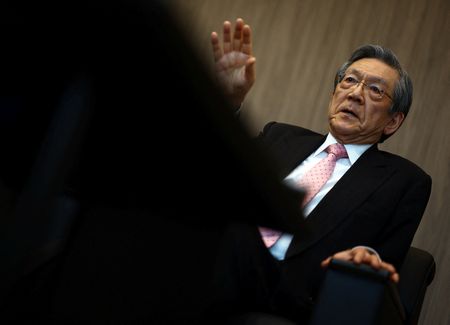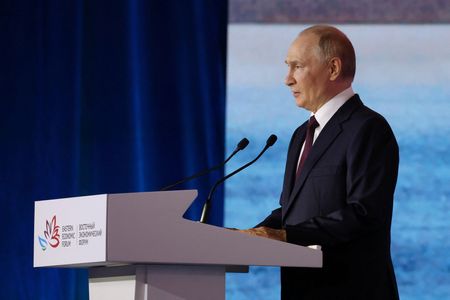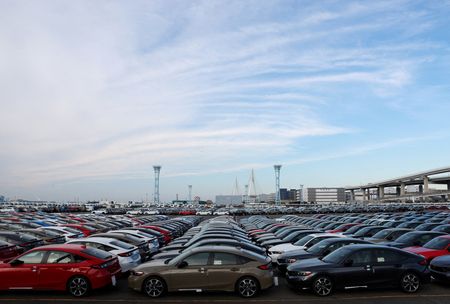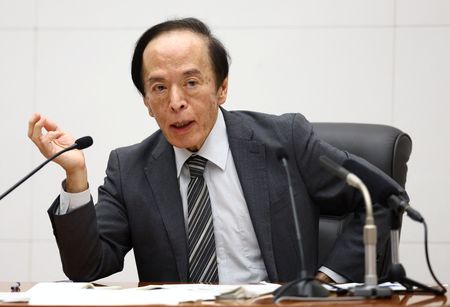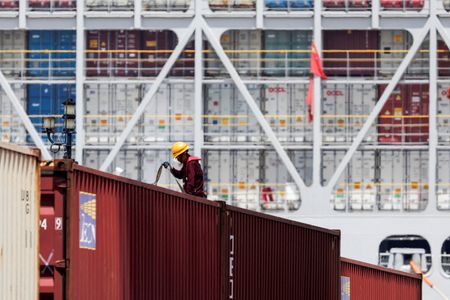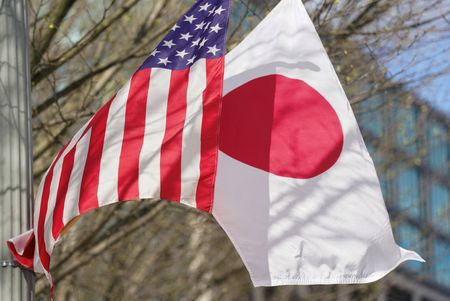By Yukiko Toyoda, Miho Uranaka and David Dolan
TOKYO (Reuters) – Japan risks reputational damage if it were to block a $47 billion foreign bid for retailer Seven & i Holdings on economic security grounds, the head of a government-backed fund said.
Japan Investment Corporation (JIC) head Keisuke Yokoo also told Reuters in an interview the fund wants to help drive consolidation among chip-materials companies and is focused on improving performance at JSR, which it took private last year in a $6 billion buyout.
JIC is not involved in the Seven & i deal, nevertheless, Yokoo’s comments show that Japan’s business establishment is not as uniformly protectionist as it is sometimes portrayed. His statements also underscore the broader stakes involved for the world’s fourth-largest economy after Canada’s Alimentation Couche-Tard unveiled its bid to acquire the 7-Eleven owner in August.
While protectionism is on the rise in the United States, where President Donald Trump has kicked off a trade war with a series of tariffs, Japan has in recent years stepped up efforts to entice more foreign investment, including by overhauling corporate governance.
Circle K owner Couche-Tard has so far faced a frosty reception from Seven & i. Some politicians have cited economic security concerns over the potential acquisition, raising the possibility that Tokyo could take a protectionist stance to keep the beloved convenience store in domestic hands.
“It wouldn’t be good for Japan’s image,” Yokoo told Reuters in an interview on Friday, when asked about the potential impact if the government were to intervene and block the bid. “It’s hard to see how the retail business is connected to economic security,” he said.
In September, Seven & i was classified as “core” to national security. While the mainstay convenience-store business wouldn’t require a national security review in the event of a foreign takeover, Seven & i has wide-ranging operations, including financial services.
‘ECONOMIC METABOLISM’
JIC was set up in 2018 to invest in companies and boost Japan’s competitiveness. It is overseen by the powerful trade ministry and on its website touts the need for “economic metabolism,” a term used by policymakers to denote the need for stronger companies to replace weaker ones, often by acquisitions.
One area in need of a shake-up is Japan’s chemicals industry, Yokoo said. The sector includes firms that supply chip-related companies. Japan may no longer be a global leader in making semiconductors, but it retains dominance in high-end chemicals and materials that are essential for chips. JSR, for example, is a top maker of photoresists, the light-sensitive chemicals used to etch patterns onto wafers.
“There are quite a lot of chemicals companies. We need to make them fewer in number and bigger in size so that they can have a bigger presence in the world market,” he said. “We are always aware of the need to mix large, medium and small-sized companies, and we are considering this internally,” he said.
While the policy to pursue consolidation “has not changed”, Yokoo said an immediate focus was on fixing issues at JSR. JSR’s new CEO, who started on Tuesday, told Reuters last week he would work to restore performance after the company was hit by losses at its life sciences unit.
Yokoo said he was aiming for a return of at least 1.5 times on the JSR investment.
When asked whether he would consider investing in troubled Nissan, Yokoo said the troubled automaker first needed to revive itself.
“We are prepared to provide equity for the purpose of strengthening Japan’s manufacturing competitiveness, but not for rehabilitation,” he said.
“I’ve said that I’d be interested in talking once they managed to turn themselves around.” (This story has been corrected to fix the fund name in paragraph 2)
(Reporting by Yukiko Toyoda, David Dolan and Miho Uranaka; Editing by Sharon Singleton)

